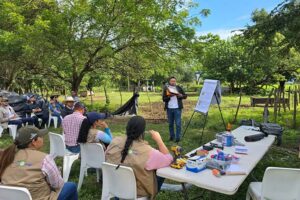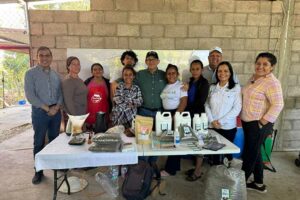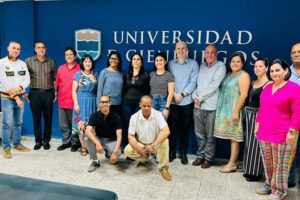Women Entrepreneurs in the Green and Blue Economy Strengthen Their Negotiation Skills
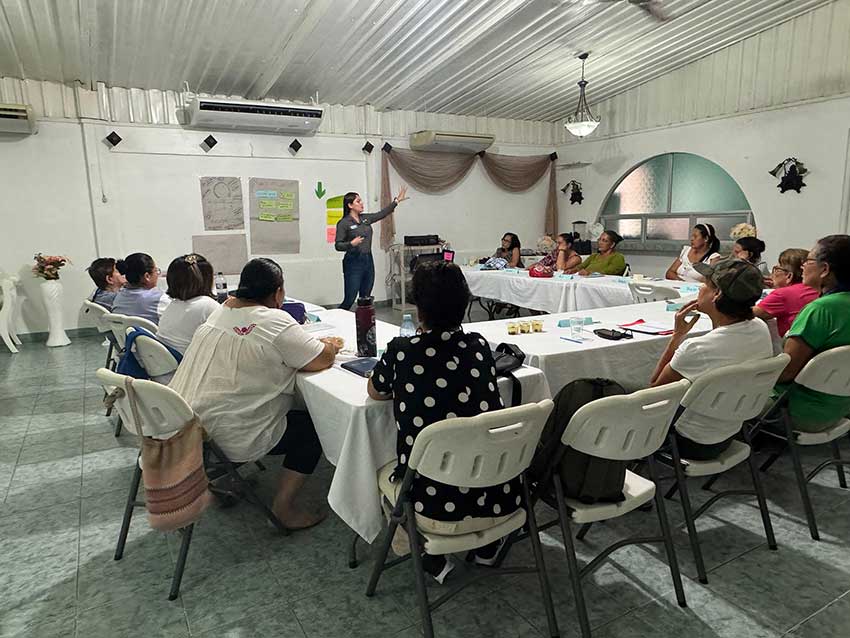
- With the participation of 65 women from different regions of Costa Rica, in-person workshops concluded as part of a project promoted by CAF, INAMU, and CATIE, focused on strengthening key skills in negotiation, legal framework, and effective business communication.
With the workshop held in Ciudad Neily, Brunca Region of Costa Rica, the national tour of in-person trainings for the project Strengthening Women's Capacities for the Development and Management of Green and Blue Economy Projects/Enterprises in Costa Rica came to an end. This initiative was led by the Development Bank of Latin America and the Caribbean (CAF), in partnership with the National Institute for Women (INAMU) and with technical support from CATIE (Tropical Agricultural Research and Higher Education Center).
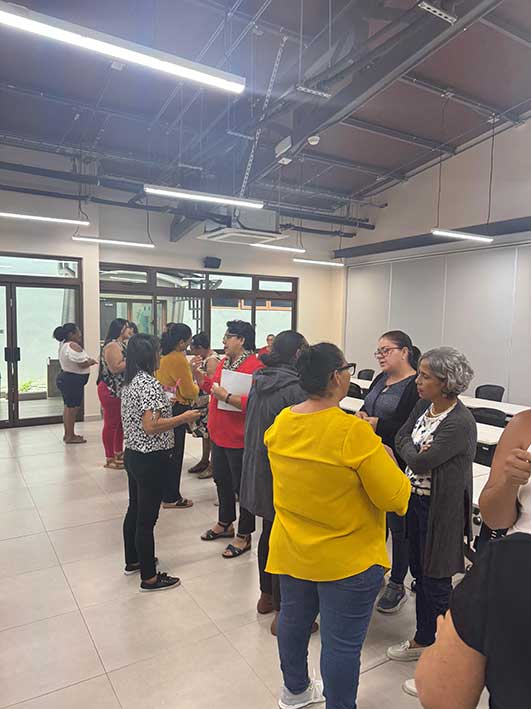
In total, 65 women entrepreneurs from the Huetar Caribe, Chorotega, Central Pacific, and Brunca regions participated in these sessions held between May 14 and 28. The workshops addressed essential topics for the sustainability of their enterprises, such as effective negotiation techniques, review of the Costa Rican regulatory framework, conflict management, and the development of business pitches.
"The development of skills such as negotiation and the clear communication of their value propositions is fundamental for the growth of women-led businesses. These spaces aim precisely to provide practical and contextualized tools to strengthen their economic empowerment," said Anthony Gamboa, one of the facilitators of the process and agribusiness specialist at CATIE.
During the last workshop, held in Puntarenas, the Minister for the Status of Women, Cindy Tatiana Quesada, participated and acknowledged the value of this type of initiative to close structural gaps and enhance the leading role of women in the country's sustainable economy.
Susana Acuña, also a facilitator and agribusiness specialist at CATIE, highlighted that "we worked with participatory methodologies, very close to the daily reality of these women. We identified a strong need to strengthen their negotiation skills, generate win-win agreements, and present their businesses in a clear and convincing way."
From the voices of the participants themselves, the workshops also left a lasting impact. Laura Granados Rodríguez, an entrepreneur from the Brunca Region, noted: "Even though I already had prior experience in negotiation and presentations, this training was a key opportunity to deepen and focus those skills in the context of my current business. I learned to better structure each stage of the negotiation process and to communicate my value propositions more clearly. I also significantly improved my pitch, which gives me more confidence to present my business effectively."
For her part, Yamileth Suazo Vargas, an abacá producer from Ticaban, Guápiles, shared: "I thought it would be just another workshop, but I was wrong. It was totally different and transformative. It helped me understand how to present my business to the client, evaluate my finances, and improve my processes. The most valuable part was feeling supported by other women who face similar challenges. I hope more producers get the chance to experience this."
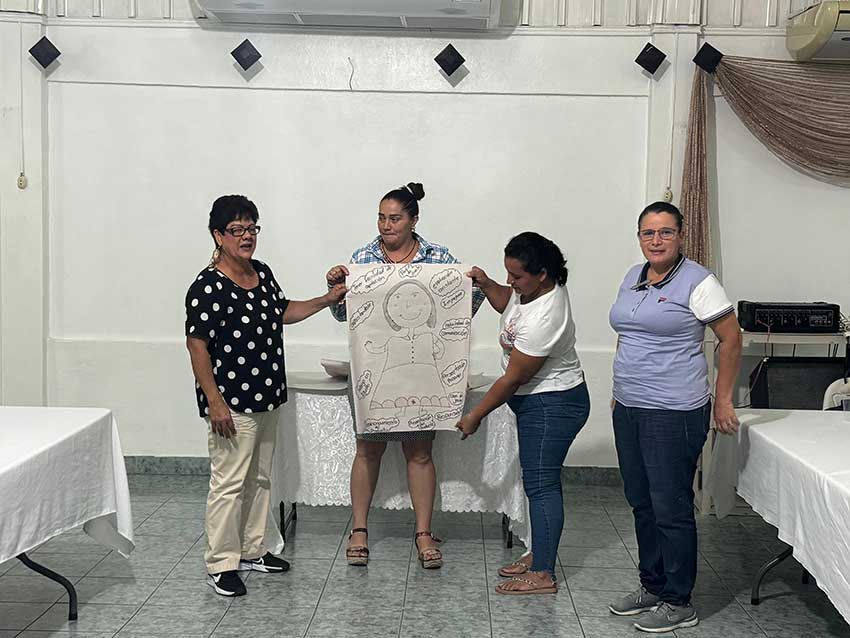
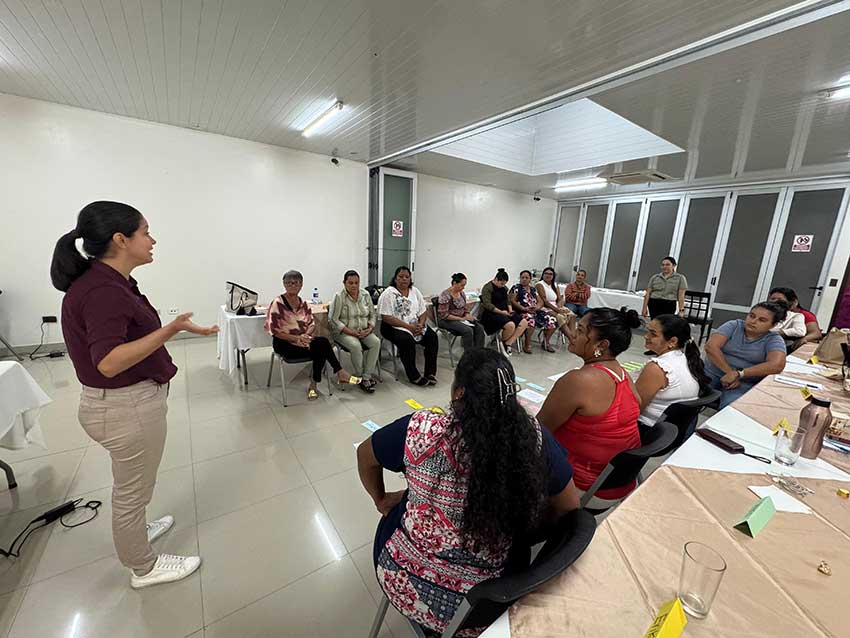
One of the components that generated the most interest was the development of pitch the business pitch, a key tool for accessing financing, building networks, and positioning in competitive markets. In the words of Adriana Escobedo, agribusiness specialist at CATIE, "economically empowering a woman not only improves her life, but also that of her family and her community. Knowing how to negotiate and communicate her ideas can make the difference between stagnation and growth."
As the next stage of the project, virtual capsules will be offered on biodiversity, gender, administrative procedures, and the use of institutional platforms. Additionally, a regional closing event will be organized in each territory under the name Green and Blue Connection: Sustainable Enterprises Led by Women, where the entrepreneurs will present their projects to representatives from public institutions, businesses, academia, and international cooperation.
This project represents a firm step toward the consolidation of a support ecosystem for women entrepreneurs, contributing to the inclusive and sustainable development of the country.
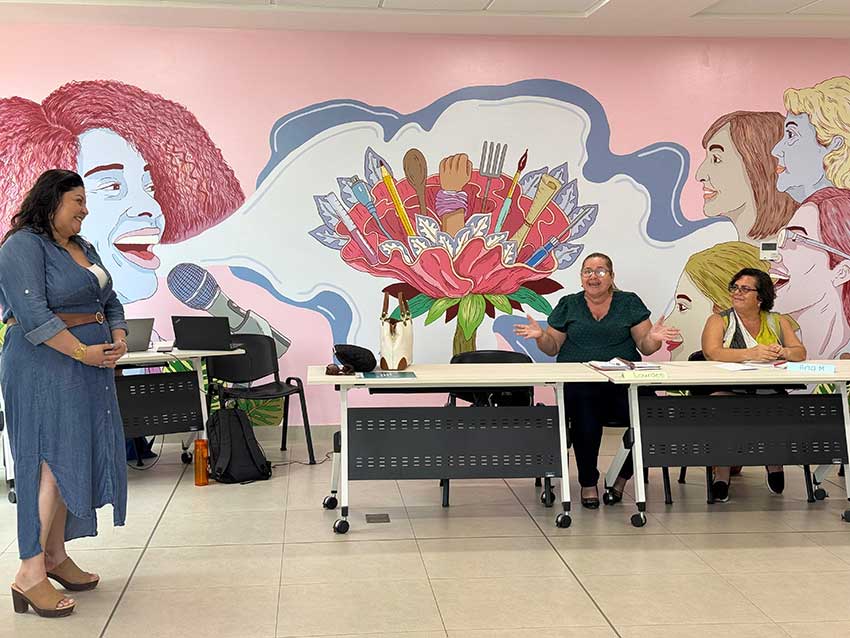
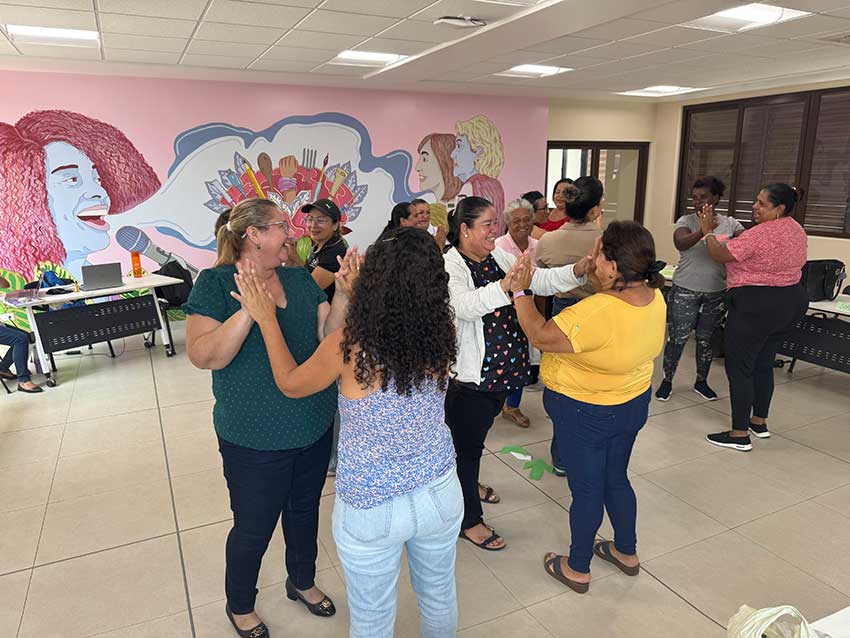
More information:
Susana Acuña
Specialist in Sustainable Agribusiness
Unit for Environmental Economics and Sustainable Agribusiness (UEAAS/EfD)
CATIE
susana.acuna@catie.ac.cr
Anthony Gamboa
Specialist in Sustainable Agribusiness
Unit for Environmental Economics and Sustainable Agribusiness (UEAAS/EfD)
CATIE
anthony.gamboa@catie.ac.cr
Written by:
Karla Salazar Leiva
Communicator
Communications and Marketing Office
CATIE
karla.salazar@catie.ac.cr

